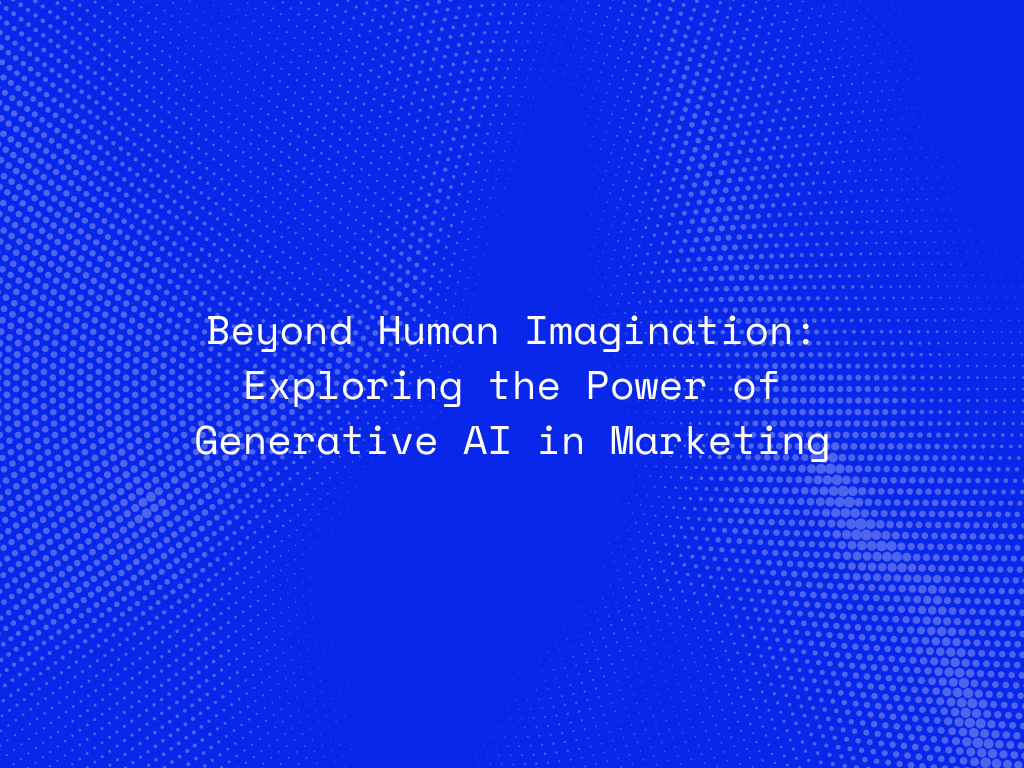Professionals in marketing are always looking for new and creative methods to engage audiences in today’s digitally-driven environment. Generative artificial intelligence (AI) is one technology that has changed the marketing environment significantly. This blog article explores with the revolutionary potential of generative AI in marketing, examining its uses, advantages, and consequences for changing the nature of brand-consumer relationships.
Understanding Generative AI:
A specific kind of artificial intelligence known as “generative AI” is dedicated to the autonomous creation of new content. Generative AI models, by utilizing large datasets and sophisticated algorithms, can produce a wide range of interesting and engaging material in different formats, such as text, graphics, videos, and more. Generative AI allows marketers to create personalized content at scale that meets the particular preferences and interests of customers, in contrast to traditional marketing strategies that rely on human content generation.
Personalized Content Creation:
The ability of generative AI to provide tailored content experiences is one of its main advantages in marketing. Generative AI models can provide customized content that appeals to particular audience groups by examining user data and behavioral patterns. This increases relevance and encourages interaction. Generative AI enables marketers to create hyper-personalized experiences that grab attention and build deep relationships with customers, whether it’s through dynamically generated product recommendations, tailored emails, or targeted ads.

Enhanced Creativity and Innovation:
By helping brands to push the boundaries of conventional marketing techniques and investigate new creative possibilities, generative AI acts as a catalyst for creativity and innovation in the marketing industry. With the help of generative AI, marketers can experiment with different content formats, styles, and narrative methods to produce immersive brand experiences that captivate viewers. Generative AI stimulates creativity and makes brands stand out in a crowded digital landscape by producing engaging narratives through automated storytelling and interactive social media content generation.
Streamlined Content Production:
Additionally, generative AI speeds up the creation of content, saving advertisers money and effort without sacrificing consistency or quality. Generative AI allows marketing teams to concentrate on strategic initiatives and creative ideas by automating monotonous processes like content localization, A/B testing, and picture and video development. These efficiency benefits enable marketers to precisely and nimbly adjust to changing consumer preferences, optimize campaigns in real-time, and iterate quickly.
Ethical Considerations and Transparency:
However, the use of generative AI in marketing also brings up significant ethical questions, especially in relation to matters like algorithmic bias, transparency, and data protection. To keep the integrity and trust of consumers, marketers using generative AI technology must emphasize ethical standards and guarantee openness. Marketers can reduce potential risks and maintain ethical standards in their marketing endeavors by putting in place strong governance frameworks and following industry best practices.
Conclusion:
Generative AI represents a shift in marketing, offering unprecedented opportunities for creativity, personalization, and efficiency. As marketers continue to harness the power of generative AI, they must embrace ethical practices, foster transparency, and prioritize consumer interests to drive sustainable growth and success. By leveraging generative AI as a strategic ally, brands can transcend the limitations of human imagination and unlock new possibilities for engaging and delighting audiences in the digital age.




